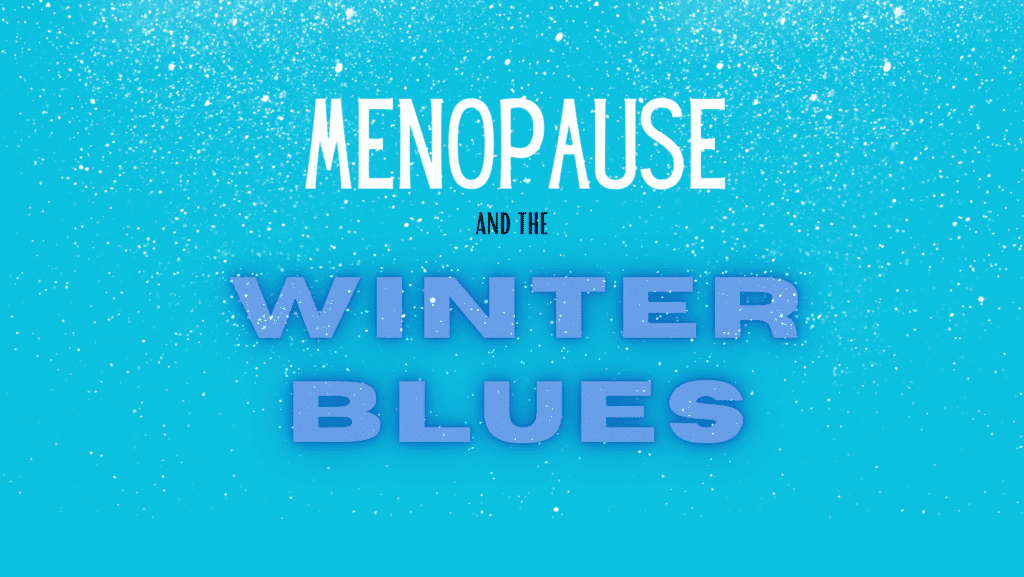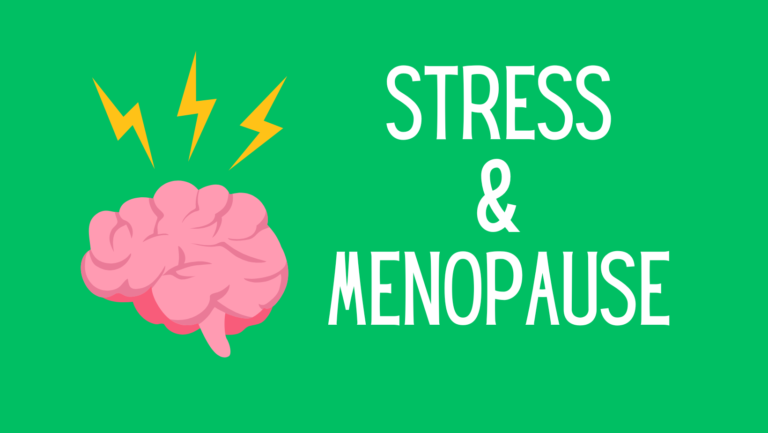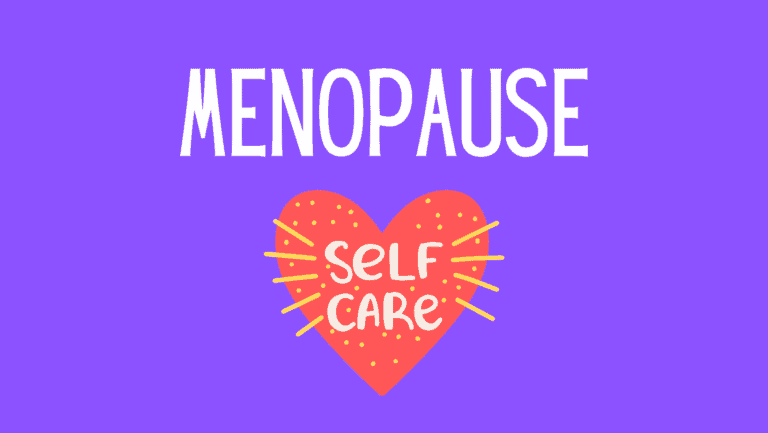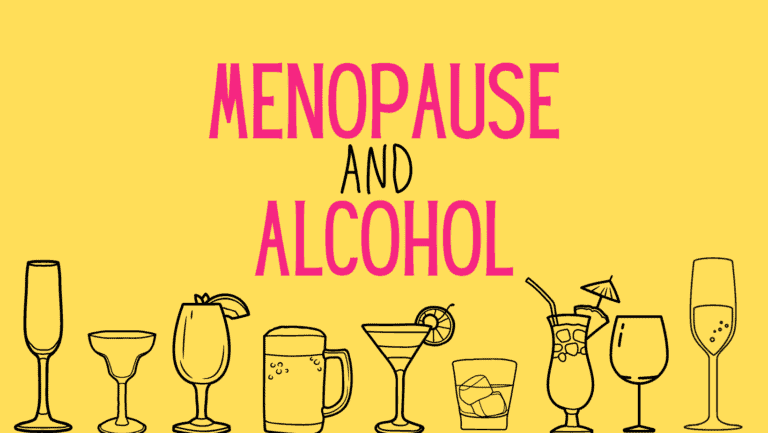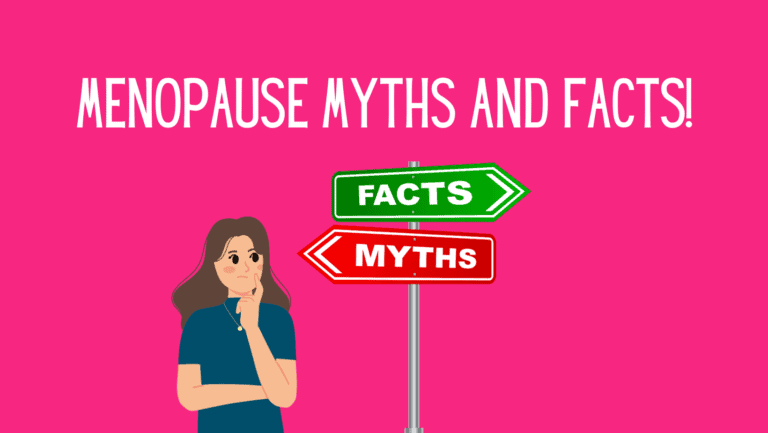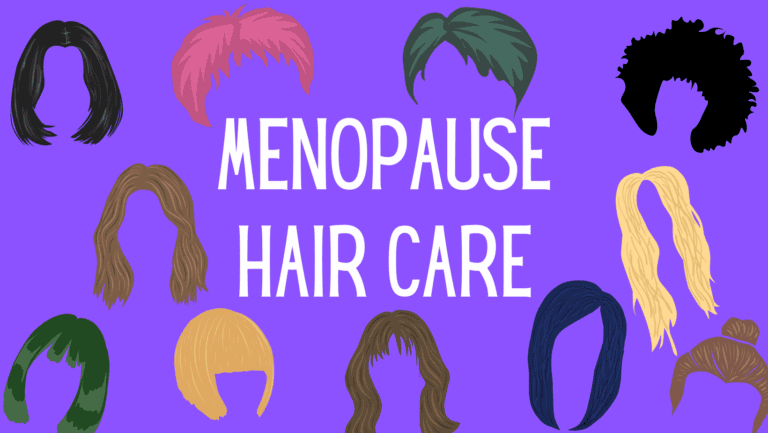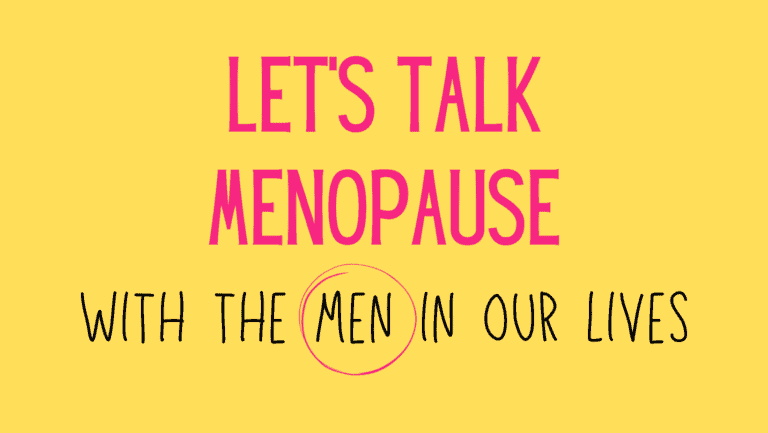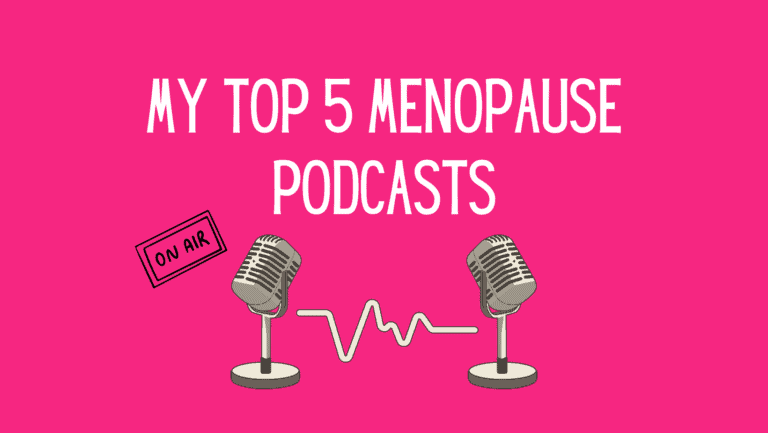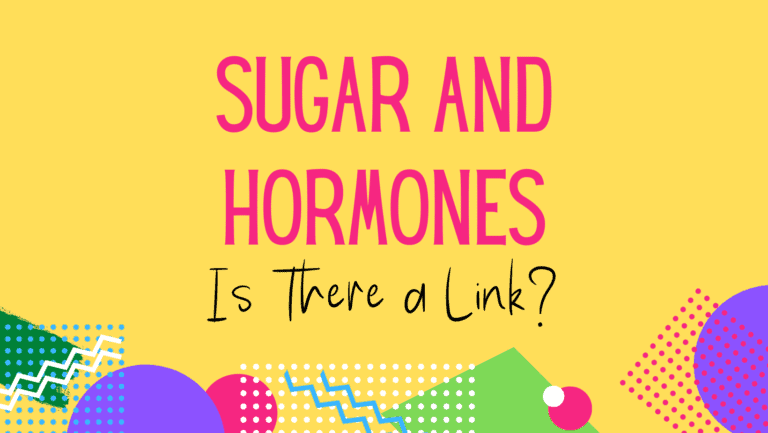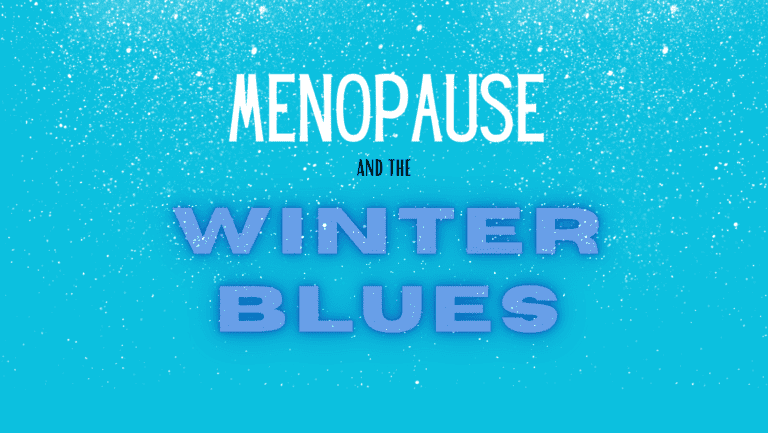Are you worried about menopause and the winter blues?
Winter can be a tough time for us women who are slap-bang in the middle of menopause.
With high rates of depression amongst postmenopausal women being reported by studies worldwide, it has never been more important than now to look closely at why this is happening—and what we can do about it.
This blog post looks at how these hormonal changes occurring during menopause can contribute to winter blues, as well as provide tools for healthy coping strategies!
So grab a blanket, curl up next to the fire, and let us get started on finding some much-needed relief from these gloomy days!

It usually makes its grand entrance between the ages of 45-55, but we have spoken a lot in the blog about how it can hit WAY earlier.
I was 38 when I first noticed menopause symptoms and was only officially diagnosed at 44.
This stage in our lives turns our estrogen levels into a roller coaster.
But it’s not all doom and gloom!
While menopause can bring about horrible symptoms (hot flushes, night sweats, brain fog, joint pain), it’s a natural part of our lives.
Let’s dive into how this hormonal shift can affect your mood during the winter months.
Common Symptoms of Menopause and Perimenopause
Menopause brings with it a delightful (note the sarcasm) range of symptoms that can vary from woman to woman.
Here are 6 of the most common symptoms many women report:
Hot Flushes An intense feeling of heat that isn’t caused by an external source. I used to feel like I could rip my skin off and dive my bony body into a pool of ice.
Night Sweats Think of hot flashes’ evil twin that likes to strike overnight but a much sweatier version! They can lead to a lack of sleep loss which brings about its own problems.
Mood Changes A change in mood s can be as erratic as a teenager’s. One minute you’re fine, the next you’re crying, then you are raging angry and then full of love. It is an interesting time for the rest of the family…
Vaginal Dryness This can make having sex uncomfortable and can also lead to itching or discomfort at other times. There are over-the-counter medications like this to help.
Fatigue This was the worst for me and my earliest symptom. I needed to nap every day, feeling like if I blinked too slowly I would fall asleep.
Difficulty Sleeping: Insomnia can be a major issue, laying in bed, staring at the ceiling and knowing you have to be up soon, is the worst feeling.
Brain Fog: This goes a little further than walking into a room and forgetting why you were there. I used to forget the names of my long-standing clients, people I knew really well!
There are a lot more symptoms out there, especially in Perimenopause, when your hormones are flying around all over the place. You can read about the 20 most common here.
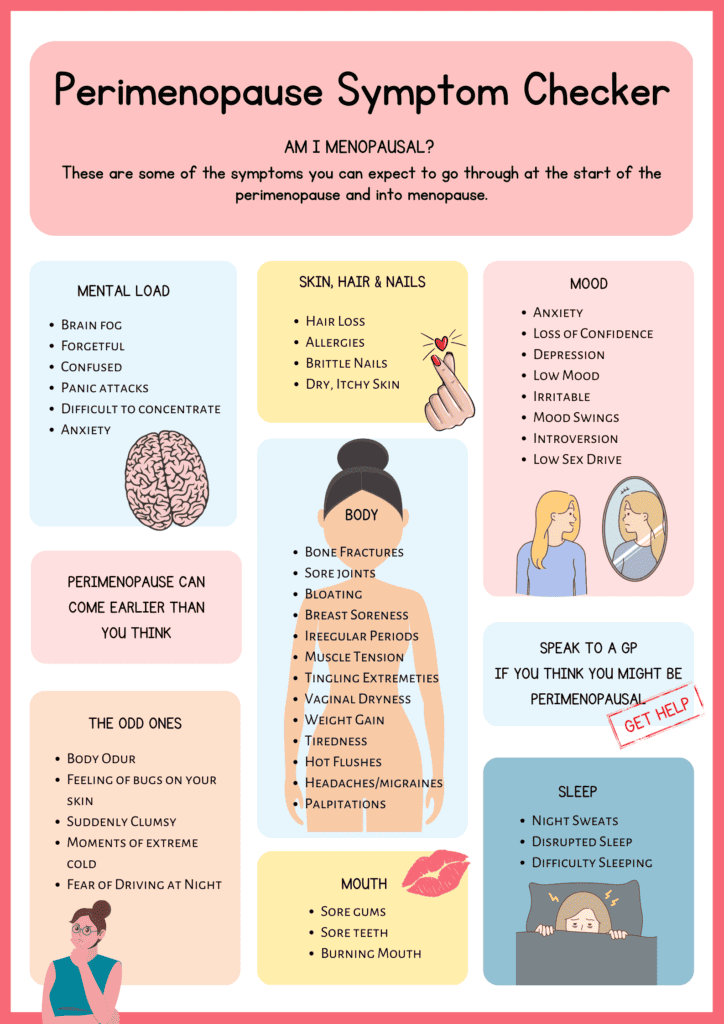
Just remember, our bodies are resilient, and there are plenty of ways to manage these symptoms and still live a fulfilling life.
Menopause and Mood Disorders
One possible change that comes up in menopause is mood disorders, which can range from mild mood swings to more severe concerns such as depression.
And yes, this includes seasonal depression.
These mood fluctuations can be caused by hormonal imbalances as well as the stresses associated with menopause and its ugly symptoms.
Understanding the links between menopause and mood disorders is essential for women to receive proper treatment and support during this transition.
If you feel “off” or these changes in mood are starting to affect your life and the people around you. Please go and speak to a GP.
There is help out there.
Hormonal changes and their effects on our Mood

Estrogen and progesterone, the main actors in this hormonal stage play, have been known to double as mood regulators.
When these divas decide to take a bow and exit the stage during menopause, they leave behind an emotional vacuum.
This can lead to changes in mood, anxiety, and, in some cases, anything from mild depression to severe depression.
It can be so hard after living a life of people asking if it is “the time of the month” when we feel down, sad, angry or sometimes even assertive.
So it is little wonder that now in this stage of life, we try and keep it all to ourselves.
Understanding Seasonal Affective Disorder

Seasonal Affective Disorder, affectionately known as SAD (oh, the irony), is far from just feeling a bit gloomy when the days get shorter.
The lack of sunlight wreaks all sorts of havoc on your internal biological clock, or circadian rhythms, leading to feeling depressed.
Symptoms of SAD are very similar to those of ‘regular’ depression and could include feelings of hopelessness, a lack of energy, difficulty concentrating, changes in appetite or weight, and even thoughts of suicide.
The science behind SAD points to serotonin and melatonin.
Reduced sunlight can cause a drop in serotonin, the neurotransmitter that affects mood, and disrupts the body’s level of melatonin, which plays a part in sleep patterns and mood.
Light therapy, psychotherapy, medication, or a combination thereof have all been shown to be effective treatments.
The Menopause-SAD Connection

The hormonal upheaval that comes with menopause can often make symptoms of SAD even worse.
Think of it as a double whammy: the menopause roller coaster meets the SAD train. This is why menopause and the winter blues is such an important topic.
Estrogen is linked to serotonin, remember the mood-affecting neurotransmitter we mentioned earlier?
So when estrogen takes a nosedive during menopause, it can drag serotonin down with it, leading to intensified seasonal depression.
It’s not exactly a party, but knowing this connection exists is a crucial step in managing both conditions effectively.
Coping Strategies

So you’re in the menopause-SAD club.
First off, welcome to the group; grab a free muffin. Now let’s talk coping strategies.
Excercise
You might want to think about regular exercise; it boosts your mood faster than you can say “hot flush”.
When dealing with menopause and the winter blues, you really need to not hate me and give this a go.
I hate exercise, genuinely hate it, but I know it makes me feel better. Even a brisk short walk in the morning makes me feel so much happier.
Exercise outdoors is not everyone’s cup of tea so…
Why not try yoga or pilates? They’re great for mind-body balance and you can do them in the comfort of your own home.
Diet
A healthy diet is a great place to start when looking at mood and energy levels.
You want to be packing in those foods rich in calcium and vitamin D – think salmon, tuna and spinach. Vitamin d deficiency is on the rise in menopausal woman, so make sure you get enough.
Don’t forget about B vitamins and omega-3s too; they’re the good guys when it comes to mood regulation.
Sleep
Lastly, make sure you’re getting enough sleep.
I know this is easier said than done. I still struggle with sleep and I am on HRT.
If you can, try and get a water-tight sleep routine and do everything you can to stick to it. Our bodies need to go to bed and wake up at the same time.
Lifestyle Changes to Help Beat Seasonal Affective Disorder

When life gives you the blues, it’s time to shake up your routine with some lifestyle changes.
Embrace the Cold Weather
Want to beat menopause and the winter blues combo?
Start by embracing the great outdoors, even if it’s a bit chilly. Get the light on your face.
A daily dose of fresh air and natural sunlight can do wonders for your mood – think of it as a cool but friendly hug from Mother Nature herself.
Get as much light as you can, even in the colder weather.
Socialise
Next, invite some friends over for a hearty winter feast; socializing can be a real mood-booster, so don’t let social isolation become a thing for you.
Don’t forget about self-care. I appreciate as a Mum who works full time that self-care can be a pipe dream. But even a few chapters of a good book, a 20-minute warm bath or a nice peaceful cup of tea will do the trick.
And remember, it’s okay to ask for help if you’re struggling. Reach out to a health professional or a trusted friend; you don’t have to face the seasonal affective disorder alone.
Conclusion
So know that menopause and the winter blues might feel like uninvited guests at your life’s party, but trust me, they can be manageable.
Think of them as opportunities to embrace new routines and lifestyles, while also learning more about your own resilience and strength.
Please don’t forget, every winter eventually turns to spring. Which happens to be my favourite season.
Yes, menopause can be a bit of a roller coaster, and winter can feel endless, but with the right tools – a balanced diet, exercise, self-care, and perhaps most importantly, a dash of humour – you’ll not just get through them, you’ll thrive.
Resources for Further Support
National Menopause Foundation: They offer a wealth of information about navigating the menopausal stage in life, along with community support and advice. Visit their website at www.menopause.org.
Seasonal Affective Disorder Association (SADA): SADA provides information and advice to individuals dealing with the winter blues. Find out more by going to www.sada.org.uk.
Mental Health America (MHA): Their online resource center offers self-help tools and information on how to seek professional help. You can reach them at www.mhanational.org.
Community Centers and Clubs: These provide great opportunities for socializing and enjoying group activities. Check out your local listings.
Local Dietitians or Nutritionists: They can help you with dietary changes that may alleviate menopause and SAD symptoms.
Remember, there’s a whole community out there ready to provide support and guidance. You’re not alone on this journey.
Table of Contents
Disclaimer: I am not a medical professional, herbal or physical therapist, and I am not educated in the menopause space. All opinions expressed on this blog are my own and should not be taken as medical advice. This blog is intended to share my personal experiences and insights, and should not be used as a substitute for professional advice. Please consult a qualified medical professional, herbal or physical therapist for any health-related concerns. Additionally, I strive to keep things light and entertaining, but please keep in mind that the topics discussed on this blog may be sensitive or triggering for some readers.
Get Your Free Perimenopause Symptom Checker
Thank you!
Your symptom checker is on its way to you!
